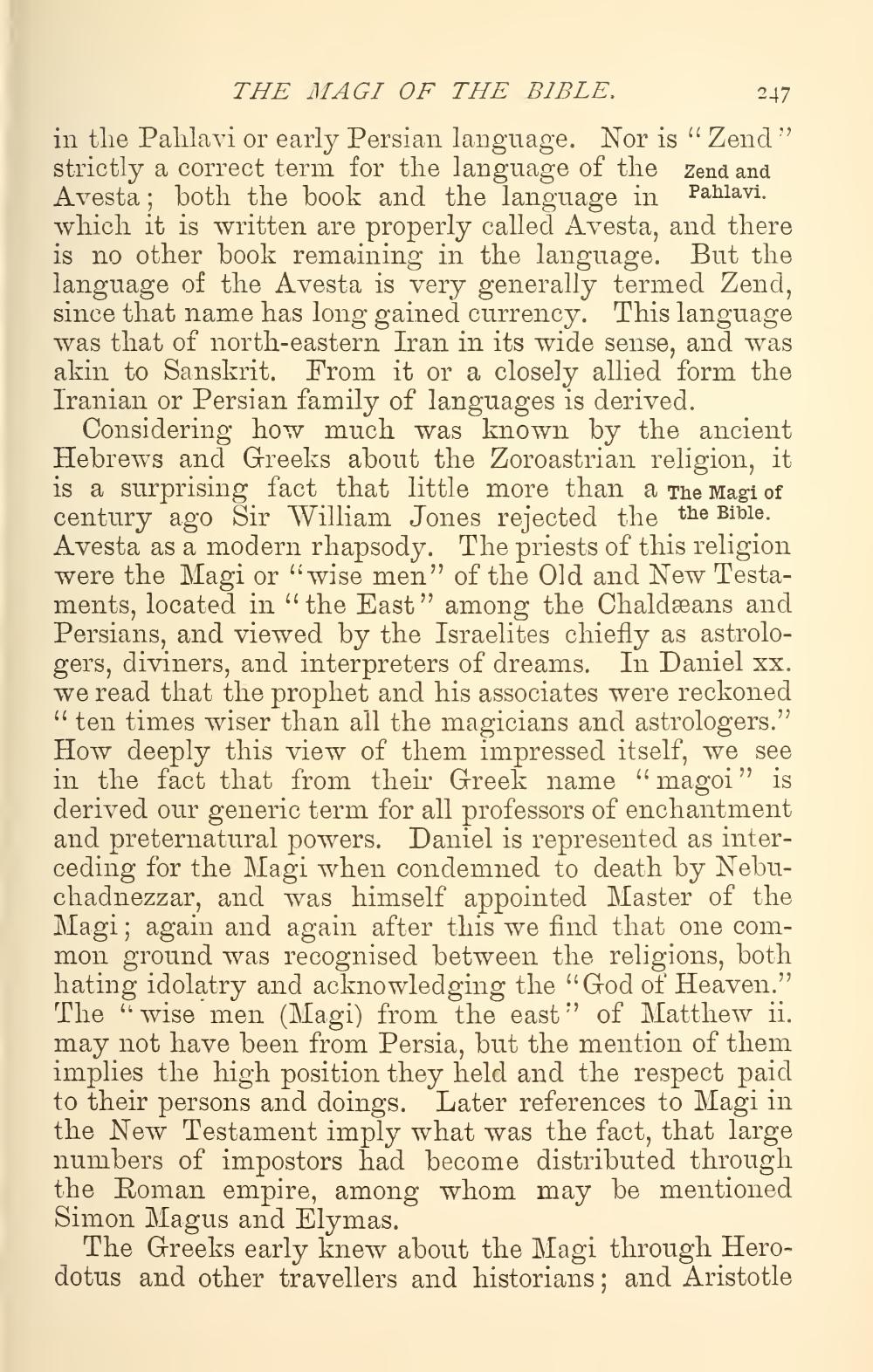________________
THE MAGI OF THE BIBLE.
247
in the Pahlavi or early Persian language. Nor is "Zend" strictly a correct term for the language of the Zend and Avesta; both the book and the language in Pahlavi. which it is written are properly called Avesta, and there is no other book remaining in the language. But the language of the Avesta is very generally termed Zend, since that name has long gained currency. This language was that of north-eastern Iran in its wide sense, and was akin to Sanskrit. From it or a closely allied form the Iranian or Persian family of languages is derived.
Considering how much was known by the ancient Hebrews and Greeks about the Zoroastrian religion, it is a surprising fact that little more than a The Magi of century ago Sir William Jones rejected the the Bible. Avesta as a modern rhapsody. The priests of this religion were the Magi or wise men” of the Old and New Testaments, located in "the East” among the Chaldæans and Persians, and viewed by the Israelites chiefly as astrologers, diviners, and interpreters of dreams. In Daniel xx. we read that the prophet and his associates were reckoned "ten times wiser than all the magicians and astrologers.” How deeply this view of them impressed itself, we see in the fact that from their Greek name “magoi” is derived our generic term for all professors of enchantment and preternatural powers. Daniel is represented as interceding for the Magi when condemned to death by Nebuchadnezzar, and was himself appointed Master of the Magi; again and again after this we find that one common ground was recognised between the religions, both hating idolatry and acknowledging the “God of Heaven.” The “wise men (Magi) from the east”' of Matthew ii. may not have been from Persia, but the mention of them implies the high position they held and the respect paid to their persons and doings. Later references to Magi in the New Testament imply what was the fact, that large numbers of impostors had become distributed through the Roman empire, among whom may be mentioned Simon Magus and Elymas.
The Greeks early knew about the Magi through Herodotus and other travellers and historians; and Aristotle




